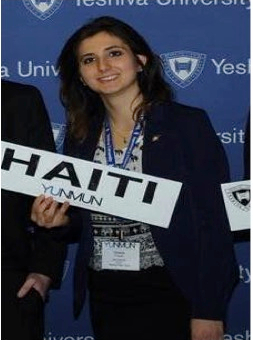This weeks parsha, Noach, we learn that “Two by two the animals entered the teivah (ark).” When hearing that statement, it doesn’t doesn’t seem like so many animals. Take a moment to think of how many breeds of dogs there are to choose from when you go to the pound, to find your new family pet. There are hundreds of different breeds! This is true for all animals. While keeping that in mind, remember, Noach and his family took care of the animals, birds, reptiles, and insects for an entire year!
Each day Noach and his family would have to feed every creature their food at their desired times, without a moment to breathe. The entire family put aside their own needs and desires to tend to those of the animals. According to Chazal (our Rabbis) the flood waters never entered Eretz Yisroel (land of Israel), so why did Hashem not just make it a few day journey on the teivah to this “safe haven,” and relieve Noach and his family of the burdens from caring for the different creatures?
Rabbi Eliyahu Dessler understands that Hashem maintained the flood and the teivah at this time was not just a means of transporting the creatures and Noach’s family, but as a goal in itself. What was that goal? It is said that the people from Noach’s time were “grabbers,” which means, that their sin was selfishness. They would take whatever they wanted or needed, not caring what effect it had on another person. What these people had been doing is the opposite of chessed (Kindness). Chessed is being concerned about another person’s needs to the point that you are willing to put your own needs and desires on the sidelines. Pirkei Avos teaches that Chesed is one of the three things that keeps the world turning, and since the entire population lacked this trait, Hashem brought the flood.
The flood was designed brilliantly; obviously- Hashem designed it. All the “grabbers” were wiped out leaving only Noach, his wife, three sons and each of their wives. There were enough couples that the human race would continue to grow, and humanity would be re-created with a set of principles that were learned during the flood.
After slaving over their boatful of creatures for a year, Noach’s family found chessed incorporated into their DNA. This newfound character trait of chessed would be transmitted to future generations as part of every being a human.
So now, with our deeper understanding, it makes sense that Hashem did not just deliver them into the “safe haven.” “The world needed a year of giving, a year of healing, which was the key factor that brought about the salvation.”
(Berzansky 32)
Obviously Noach’s time spent on the teivah can teach us something. Is it common for us to put our personal feelings before those of our friends and family? From the countless number of people who died from the flood, let us learn how destructive it is to be selfish, and how healing comes through giving. “Not only does (chesed) build the world, it maintains it as well.” (Berzansky 33)
So I challenge you in this upcoming week, go out of your way to put someone else before yourself. If you get a chance, write about it and hashtag it #imagiver or join Valley NCSY on Tuesday to share it at LNL Studio City.

-Chanie Tropper
Regional Board Vice President of Outreach
